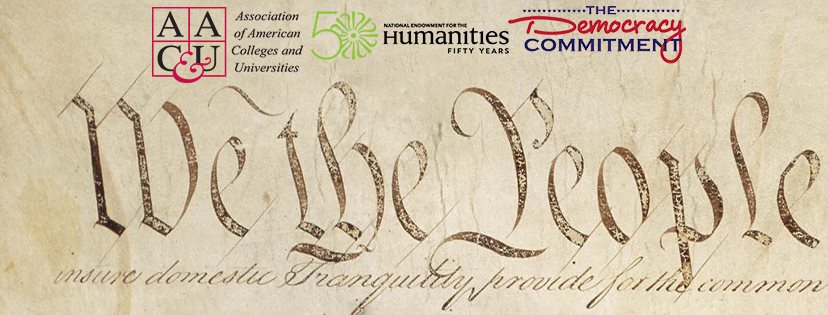Clashes Over Citizenship:
Promoting, Listening, Learning, and Engagement
A Webinar Series of the Citizenship Under Siege Project
The US Constitution’s preamble speaks of “We the People”—but who is considered part of that sacred circle, and how has this group varied over time? When national identity is hotly contested, what does it mean to experience citizenship as partial, denied, or fully acknowledged? How can the humanities illuminate differing narratives and open up space for understanding, connections, and shared visions of the future?
The Association of American Colleges and Universities and The Democracy Commitment invite faculty, staff, students, and campus community partners to join in one or all of three FREE webinars. These events are designed to expand campus expertise on how to hold constructive conversations about contentious issues and how to institute practices in and out of the classroom that foster engagement across differences. Register TODAY and join us!
A Three-Part Series
3:00–4:00 p.m. Eastern Time
From Fractious Differences to Engaged Dialogues
October 13, 2016
How can texts and techniques from the humanities disrupt unexamined positions, put human faces to abstract ideas, and help open up spaces where dialogue and consensus might emerge on historic and contemporary questions about citizenship and who deserves it? What models exist for training dialogue facilitators who can help encourage listening and perspective taking across seemingly intractable positions? (Register online)
- Verdis Robinson, Interim National Manager, The Democracy Commitment
- Caryn McTighe Musil, Senior Director of Civic Learning and Democracy Initiatives, Association of American Colleges and Universities
- John Soltes, Communication Department, County College of Morris
- Jason Zelesky, Dean of Students, Mount Wachusett Community College
Income Inequality and the Cost of Citizenship
October 27, 2016
When economic disparities—often intertwined with ethnic, racial, and religious differences—impose real limitations on public participation, how can the humanities provide insights into the historic and persistent reality of differential access to full citizenship rights? Learn how several campuses have engaged their students and communities in examining this issue. (Register online)
- Steve Davis, History Department, Lone Star College, Kingwood
- Jill A. Schennum, Chair, Anthropology, Social Sciences, and Economics, County College of Morris
- Seth Howard, Assistant Director, Center for Civic Engagement, Lone Star College
- Erika Herrera, Political Science Department, Lone Star College, North Harris
- Fagan Forhan, Assistant Dean of K-12 Partnerships and Civic Engagement, Mount Wachusett Community College
I Want My Country Back: Immigration, Race, and Citizenship
November 3, 2016
In the midst of sometimes-dramatic demographic and cultural shifts, how have the humanities served to illuminate felt experiences, historical contexts, and ethical issues as the rich mosaic of people in the United States fluctuates? What approaches, courses, and public events lead to shared ends rather than perpetual conflict or feelings of displacement? (Register online)
- David Kalivas, World History and Director of the Commonwealth Honors Program, Middlesex Community College
- Helen-Margaret Nasser, Associate Director of the Honors Program, Kingsborough Community College
- Dona Cady, Dean, Global Education, and Matthew Olson, Dean, Humanities and Social Sciences, Middlesex Community College
- David Price, History Department, and Vilma E. Fuentes, Assistant Vice President for Academic Affairs, Santa Fe College
Follow the link for Citizenship Under Siege for more information about the project.
For more information, please contact:
- Verdis L. Robinson at [email protected] (TDC)
- Caryn McTighe Musil at [email protected] (AAC&U)
- Carol-lynn Swol at [email protected]
Funded by the National Endowment for the Humanities and hosted by the Association of American Colleges and Universities & The Democracy Commitment.
Any views, findings, conclusions, or recommendations endowment for the expressed in these webinars do not necessarily represent those of the National Endowment for the Humanities.



